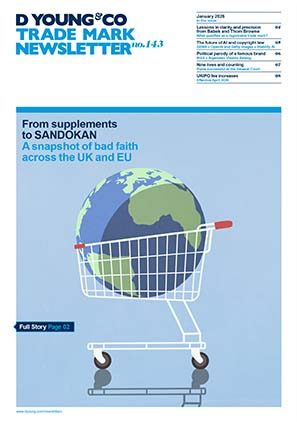Oh glow up! Another TV format case fails
The BBC has succeeded in getting a seemingly spurious case against it thrown out. This case concerns an allegation by an individual that the BBC and Wall To Wall Media had infringed her rights in relation to a TV show format, resulting in the show Glow up: Britain’s Next Make-Up Star.
The claimant was a litigant in person. She initiated the claim, made an application for summary judgment and then stopped engaging completely and did not even show up to the hearing.
The defendants made an application to strike out the claim, on the basis that there were no reasonable grounds for bringing the case and that the pleadings did not reveal a legally recognised cause of action.
The pleadings
The claimant claimed that she shared a show “Treatment” with the BBC in 2018. The BBC subsequently went on to develop the show and that this was an infringement of her IP rights. The particulars also contained a number of other allegations including harassment and computer hacking. The judge concluded that these were extremely poorly specified and did not relate to either of the defendants, so were not relevant to this action.
The defendants denied that they had received the Treatment, or created the show with reference to it. They applied for strike out and summary judgment.
Strike out
The court has discretion to strike out a claim in certain circumstances, including (as asserted here) where the claim sets out no facts indicating what it is about, or when it makes no sense, or when it does make sense but does not reveal a legally recognised claim.
Strike out is a very draconian measure and the court should always consider whether the pleadings can be remedied instead of stuck out. However, in this case the defendants argued that strike out would still be appropriate.
The judge agreed, finding that no case had been made out in relation to any of the claims.
Summary judgment
Summary judgment may be awarded when a case has no reasonable prospect of success. Given the above, it will be no surprise that the judge also found that the defendants were entitled to summary judgment. However, the judge nonetheless decided to look at the claimant’s IP claim. On this he said the following:
- The format of the show set out in the Treatment was relatively high level (that it was a reality show, a competition, and that there was more than one judge). There was no originality in these ideas.
- Some of the points relied on did have a bit more substance, but these did not amount to copying (that the title BOSSIIE: 10 Minute Makeover was similar to Glow Up: Britain’s Next Make-Up Star, and that use of a picture of Kim Kardashian was similar to use of the picture of Stacy Dooley).
- Some of things she relied on in her pleadings were not even in the Treatment.
The judge said he was being as fair to the claimant as he possibly could be but, even ignoring all of the deficiencies in the pleadings, there was simply not enough similarity to establish that the Treatment had been copied. Thus the copyright claim would have failed, even if it was properly made out.
Finally
The judge ordered costs on an indemnity basis and even a civil restraining order stopping the claimant from making further applications without the court’s permission.
It is of course an important feature of our justice system that everyone should be able to seek justice where they have been wronged. However, this case highlights the burden on the court and on represented parties where litigants in person are not able to properly plead and rationalise their claims. The judge should be commended for doing what he could to help the litigant in person, but ultimately the right conclusion (including on costs) was reached in this case.
Case details at a glance
Jurisdiction: England & Wales
Decision level: High Court
Parties: Gladness (also known as Tumi) Jukic v British Broadcasting Corporation and Wall To Wall Media Limited
Date: 10 February 2025
Citation: [2025] EWHC 221 (Ch)
Decision: dycip.com/2025-ewhc-221-ch

